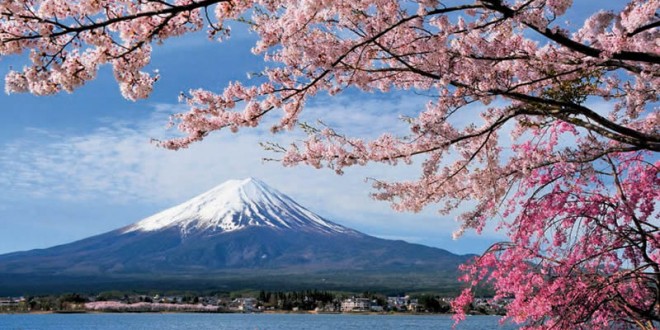Land of the rising sun
Charming people, diverse landscapes, beautiful food, fascinating culture. It’s no wonder Japan is an increasingly popular destination for travellers seeking something a little different.
Spend a little time in Japan and you’ll soon start thinking “why can’t we do things this way at home?” The trains run with military precision, there isn’t a scrap of litter to be seen, and simple activities such as bathing and drinking tea have been elevated to high culture. There’s a strong reverence for tradition; from the spiritual and meditative beauty of Japanese gardens to the countless festivals that continue to play out just as they have for centuries. And the people are unfailingly polite – even in Tokyo’s rush hour.Japan is an enormously varied and diverse country, and the contrast in geography from one end of the country to the next is quite staggering. Comprising some 6,800 islands, Japan stretches over 3,000km from the quasi-Siberian snowscapes of Hokkaido to the subtropical beaches and mangrove forests of Okinawa. Of this, over 70% of the terrain is mountainous and contains one tenth of the world’s active volcanoes.
The best time to travel to Japan?
Winter might not spring to mind as the best time to visit Japan, but travelling at this time of year has its rewards – crisp clear skies and snow covered mountains for a start. This is the best time to see Mt Fuji as it tends to hide behind clouds for a good proportion of the year. Those that do travel in winter find that shrines and temples are virtually crowd-free, making it a perfect time to travel for any keen photographers. Winter also provides winter sports enthusiasts with some of the best powder conditions in the world.
Some other highlights of winter include taking an outdoor hot spring bath in the snow, visiting the snow monkeys in Yudanaka or watching the spectacular mating dance of the Japanese red-crowned cranes in Hokkaido.
Spring brings the world-famous cherry blossoms where you can befriend the locals at sake fuelled picnic parties under canopies of pink. It’s always a bit of a gamble timing a trip to coincide with peak blooming, but a two week trip covering the main island of Honshu at the end of March or first couple of weeks in April shouldn’t disappoint.
May tends to be a sunny month with lush green landscapes and water filled rice paddies but avoid the first week which sees a string of national holidays known as “Golden Week”.
Summer in Japan is hot and humid and June/July see more rainfall than any other months – but don’t let that put you off. July and August are the only months of the year when Mt Fuji, Japan’s tallest mountain at 3,776m, is open to hikers. Summer also sees a packed programme of festivals which usually involve traditional dances, parades, floats, food stalls and fireworks with everyone dressed in yukata (summer kimonos). Fuji Rock music festival is another important event in the summer calendar.
To escape the heat, summer is a great time to go north, either into the hills and mountains around Tokyo, like the summer resort of Karuizawa, or further north to Sapporo in Hokkaido, where the temperatures feel milder. Alternatively, head to the sub-tropical beaches of Okinawa for relaxation, snorkelling and scuba diving.
Autumn sees the landscape burst into colour as the koyo front sweeps down the length of the country. Vermillion maple trees and rows of yellow ginko trees line the streets of many Japanese cities and a warm-hued patchwork reflects in the lakes of national parks. The magnificent colours of autumn provide the perfect backdrop for temples, shrines and country hikes and endless photo opportunities.
Accommodation
There is a huge range of accommodation on offer in Japan. It’s recommended to stay in western style hotels whilst in big cities and then stay in a traditional Japanese inn, known as a ryokan, in the more rural areas. Staying at a ryokan involves sleeping on futons laid on tatami mat floors and enjoying the fantastic hospitality, hot spring baths and traditional meals. A stay at a minshuku, a modest family run traditional guest house, is also recommended or, if you really want to feel like a local, stay in a renovated traditional town house known as a machiya. A complete contrast to the traditional inns, capsule hotels are another fun option for a night!
Walking & Hiking
Japan offers some spectacular scenery and interesting hiking options. One popular option is walking through picturesque villages, farmhouses and tea fields along the ancient samurai pathway known as the Nakasendo Way. Another favourite is several days of walking on the spiritual paths of the Kumano Kodo in the heart of the Kii mountains, trodden by pilgrims for more than a thousand years as they travel from shrine to shrine.
Gardens
Beautiful gardens with lily ponds, weeping willows, glistening moss and meticulously raked gravel can be found in and around every town in Japan so can be easily incorporated into any trip. No aspect of a Japanese garden is ever left to chance and each choice represents principles that have been developed over the centuries. Ritsurin-koen in Takamatsu and Kenrokuen in Kanazawa are quintessential Japanese landscape gardens. You can even put your green fingers to the test in a hands-on lesson at the Omiya Bonsai Village.
Honeymoons
Japan is becoming increasingly popular as a honeymoon destination. Taking a sunset helicopter flight over Tokyo, a photoshoot in wedding kimono, enjoying oysters and Chablis on the island of Miyajima are just a few of the experiences that can help create the perfect honeymoon.
Families
Japan is one of the safest and cleanest countries in the world. There are endless activities to keep everyone entertained, such as taiko drumming lessons, sea kayaking under the floating gate of Miyajima, cycling tours through rice paddies and getting lost in the amusement arcades of Tokyo. Japan also has a number of great theme parks ranging from Universal Studios in Osaka to the Hello Kitty Sanrio Puroland in Tokyo.
Food & Drink
When it comes to food, Japan deserves every accolade it gets. With tens of thousands of restaurants and more Michelin stars than anywhere else in the world, Tokyo is a foodies dream. Besides its best-known exports – sushi, tempura, teriyaki, Kobe beef, sake – the list of speciality and regional cuisines is truly staggering. An evening tasting sake with an expert, a home cooking class, a street food tour of Osaka or a night out with a guide enjoying lively Japanese izakayas are just a few of the culinary experiences that can be arranged.
Geisha
Geisha are one of the most iconic and easily recognisable images of Japan. Yet this is a profession that remains mysterious and little understood by outsiders. To dip your toe in this mysterious world you can attend the Geisha Dances held in March, April, May and November, take a guided walking tour of the geisha districts of Kyoto or even have an opportunity to meet a geisha or maiko (apprentice geisha) face to face at a private afternoon tea ceremony.
Traditional arts & crafts
Despite dramatic modernisation over recent years, Japan guards its culture and traditions fiercely. Lessons in the traditional art of tea ceremony, ikebana flower arranging, pottery and roketsu indigo dyeing can be arranged. It can even be arranged for you to meet a master swordsmith and see the revered art of samurai sword making up close.
Sports
When you think of sport in Japan,the ancient ritual of sumo wrestling immediately springs to mind. Try and travel during one of the six annual tournaments, you’ll be in for an exciting day.
You can also take part in aikido, Japanese archery or learn to use a katana sword in the style of a samurai. Away from the traditional sports, Japan’s favourite modern sport is baseball.
If you fancy heading East , head down to Spear Travels in Thame to hear more of what Japan has to offer the traveller.
Spear Travels
Greyhound Walk, Thame, Oxon OX9 3DY
01844 217228
thame@speartravels.net
www.speartravels.net
You can read more articles like this one in the latest edition of Thame Out.
 Thame Out The complimentary magazine for the Thame area
Thame Out The complimentary magazine for the Thame area


